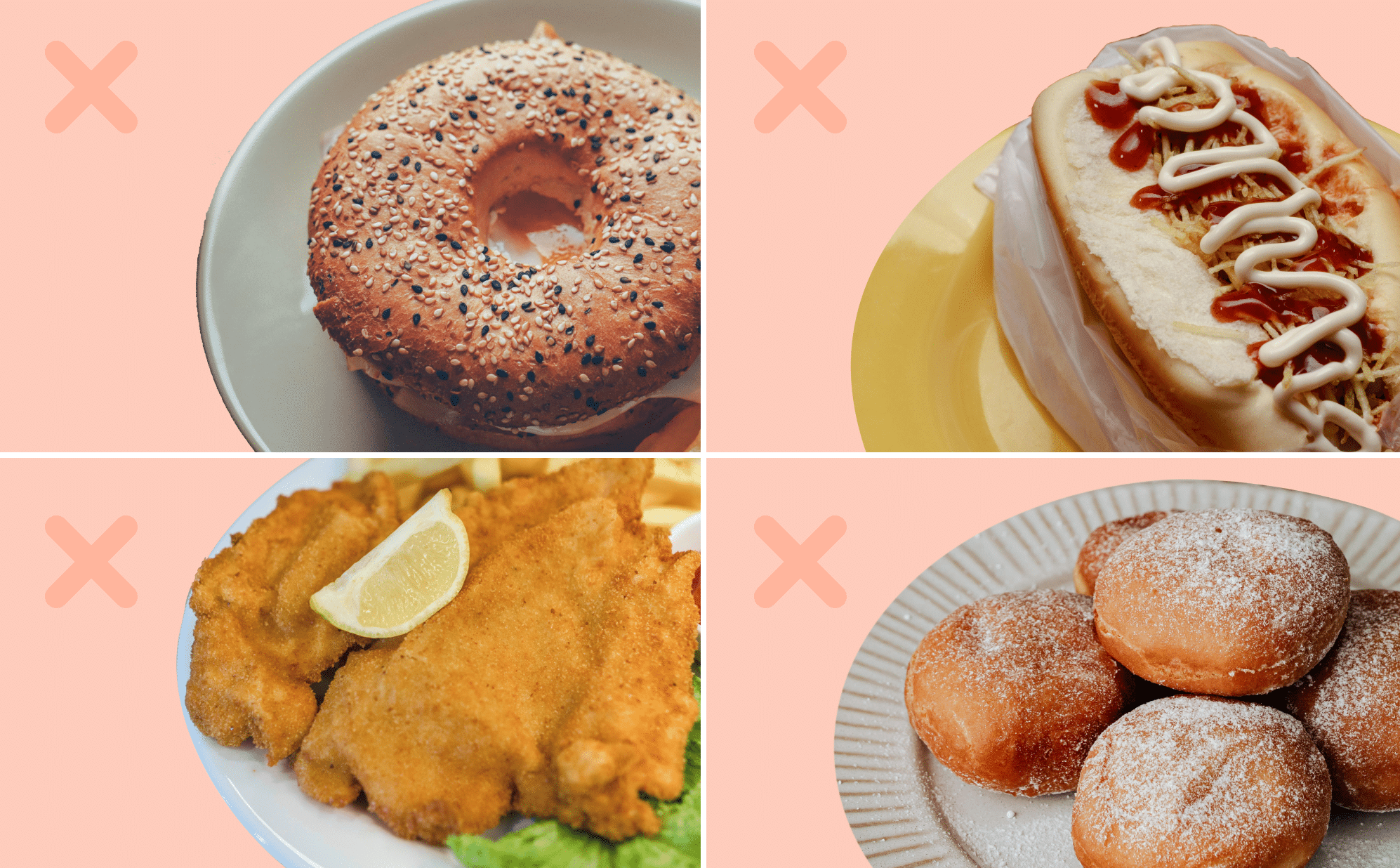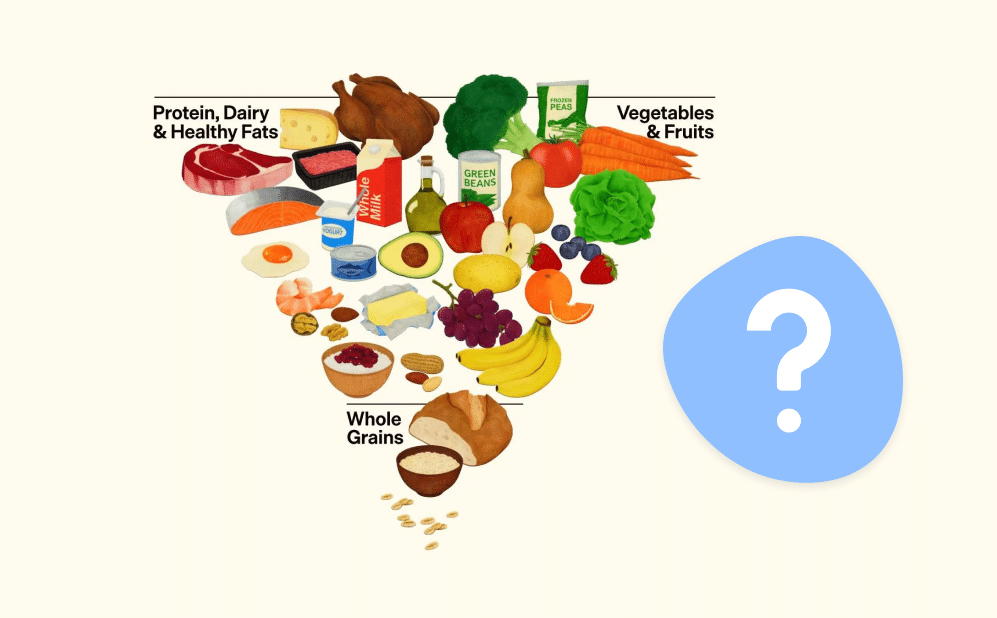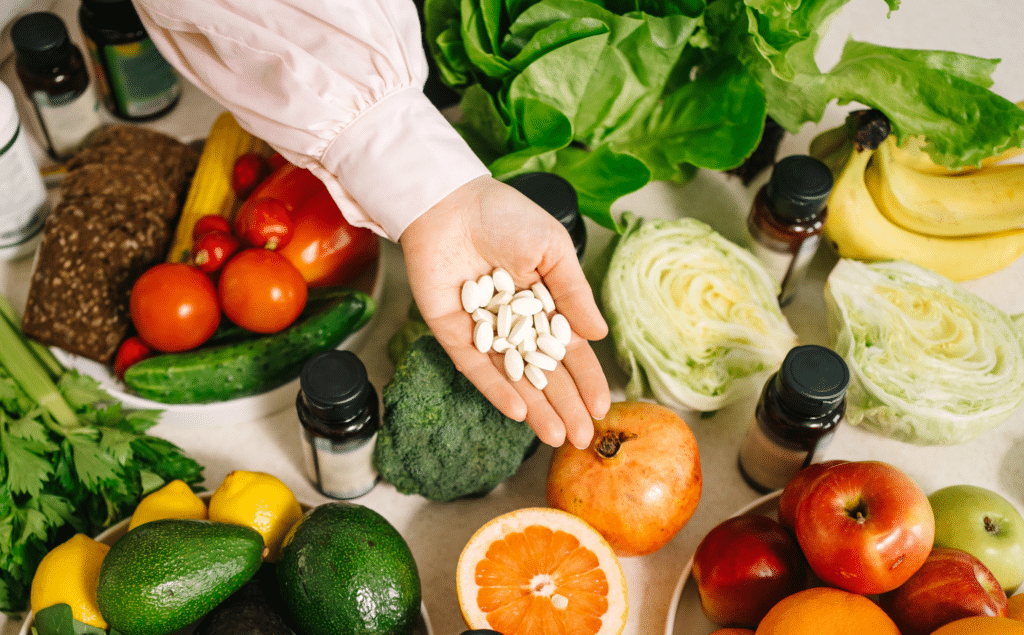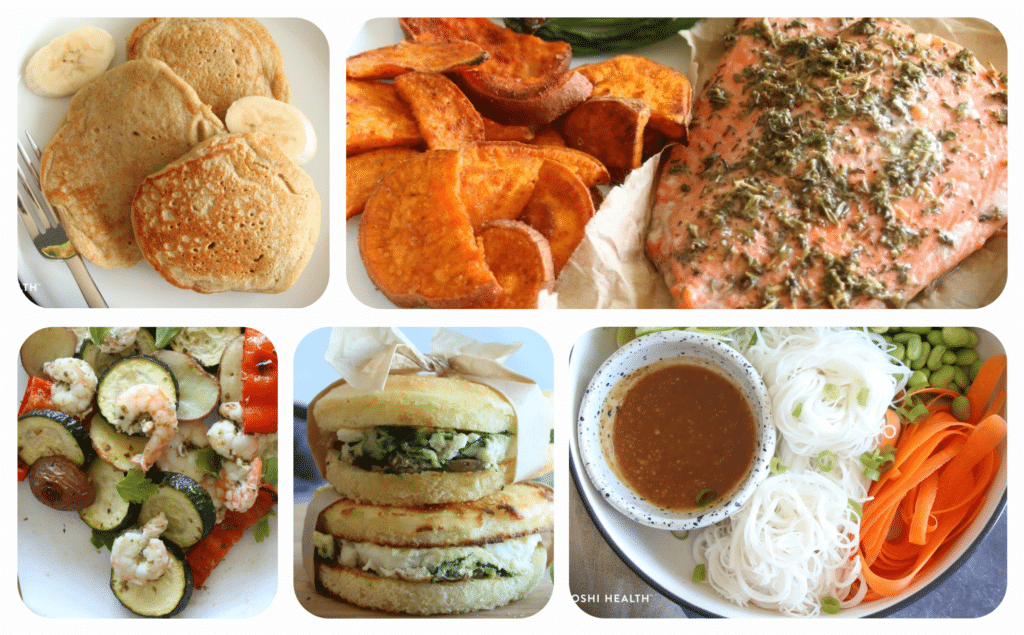Unfortunately, our food supply contains a lot of foods that may harm your gut health. A good rule of thumb is to stick to whole-food options—those as close to their original form—as much as possible. This will help you reduce the added sugars, sodium, preservatives, and other ingredients that can be harmful to your gut health.
I don’t know about you, but if my gut doesn’t feel well, then I don’t feel well—physically or mentally. If my gut is unhappy, I feel sluggish and brain-foggy, and like I want to curl up in a ball and hide from the world. Of course, like most people, I can’t really do that. What I can do is everything possible to reduce gastrointestinal (GI) tract symptoms and irritation. And that means avoiding the worst foods for gut health.
I have a host of chronic conditions I must manage, including irritable bowel syndrome (IBS). So I overhauled my diet to give my gut the very best I could possibly give it. The process has been life changing. That’s not to say that I feel perfect all the time, but I have fewer flare-ups, more energy, and better overall health. That may not be a gold medal, but I’ll call it a big win!
To be honest, the process wasn’t easy-peasy. That’s because our food supply is loaded with ultra-processed foods and harmful ingredients, and sometimes even seemingly healthy foods can cause us harm. To root out the bad guys for gut health, we have to take the magnifying glass to the ingredient list on food labels—and become trusty detectives on the case.
In this article, we’ll explore how food impacts GI health, what to avoid (while keeping the process practical), and more.
Understanding gut health
“Gut health” is one of those terms that’s hard to place into a neat little dictionary entry. Researchers don’t have an agreed-upon definition, but three factors seem to play a role in whether your GI tract is the picture of perfect health or has some issues.
The first has to do with your gut-brain axis, which is how your GI tract and your brain communicate. I like to imagine an old-school telephone cord—going from my intestines to my head—and my brain and gut having a gab session. But in reality, what we’re talking about is how the hundreds of millions of neurons in your enteric nervous system, (ENS) (which controls your digestive functions), sends signals to the brain—and how the brain signals back.
Disruptions (or miscommunications) along this pathway can lead to issues with motility (the movement of food and waste through the GI tract), or to visceral hypersensitivity (when our nerves sense heightened pain response from normal digestion).
The other two factors that provide a picture of gut health status are your gut microbiome and your intestinal barrier. Your gut microbiome is made up of the bacteria and fungi that hang out in your GI tract. You might think they’re squatting there rent free. But, depending on their composition, they do pay you back sometimes—since the good guys generate metabolites (a substance produced in the body when it breaks down food and other substances) that are beneficial to your health.
Your intestinal barrier absorbs nutrients from foods and beverages and prevents harmful substances from entering the rest of your body. It has three layers: a mucus layer, an epithelial layer (made up of proteins), and a lamina propria (made up of immune and nerve cells).
Many lifestyle factors can also affect your digestive health, including your stress levels, whether you’re getting enough quality sleep, and—you guessed it—your diet. Various foods can lead to gut microbiome imbalances, inflammation that damages the gut barrier, and more.
The 15 worst foods and beverages for gut health
If you’re looking to overhaul your diet for better GI health, a great strategy is to consult a GI registered dietitian. They’re experts in foods that support digestive health, as well as potential triggers. They can help ensure you’re getting all your essential nutrients and can eat the foods that are important for your lifestyle and culture.
Meet Oshi's GI registered dietitians
Find relief—and stay nourished
When you work with an Oshi GI registered dietitians (RD), you’ll get personalized nutrition guidance, including help with finding and avoiding potential food triggers, choosing gut-friendly supplements and recipes, and more.
They can also help you determine which foods are your potential triggers, since yours will be different from someone else’s. You might have food intolerances, such as lactose intolerance or histamine intolerance. If so, you’ll need to avoid those specific types of foods. However, these foods aren’t necessarily problematic for everyone’s gut health, so you won’t find them on this list.
Also, we’ve got to be realistic. Unless you grow all your own organic food in a pollution-free bubble, eliminating the following items or ingredients 100% from your diet will be nearly impossible. I take a practical approach: I know I will consume some of these foods some of the time out in the world, but I do my best to avoid most of them by not buying them at the grocery store to prepare and eat at home.
1. Added-sugar foods
Sugar, in excess, can damage your intestinal barrier and cause disruptions to the gut microbiome. Natural sugars—those in an apple, a handful of berries, those cute little baby carrots, and other fruits and veggies—aren’t the problem. Whole produce comes with a dose of fiber that nurtures your gut microbiome and contains antioxidants to combat inflammation.
The added sugars we encounter in processed foods, on the other hand—even seemingly healthy options like fruit-flavored yogurt—can wreak havoc on your gut. Added sugar goes by lots of different names, from agave and honey to trehalose and turbinado. You can check food labels for the added sugar amount and then scour the ingredient list for any sneaky culprits. Store-bought condiments, marinades, and salad dressings often contain added sugars. (That doesn’t mean you have to make your own, though that can be a healthier choice. You can also just look for store-bought alternatives that don’t contain added sugar or only have a few grams.)
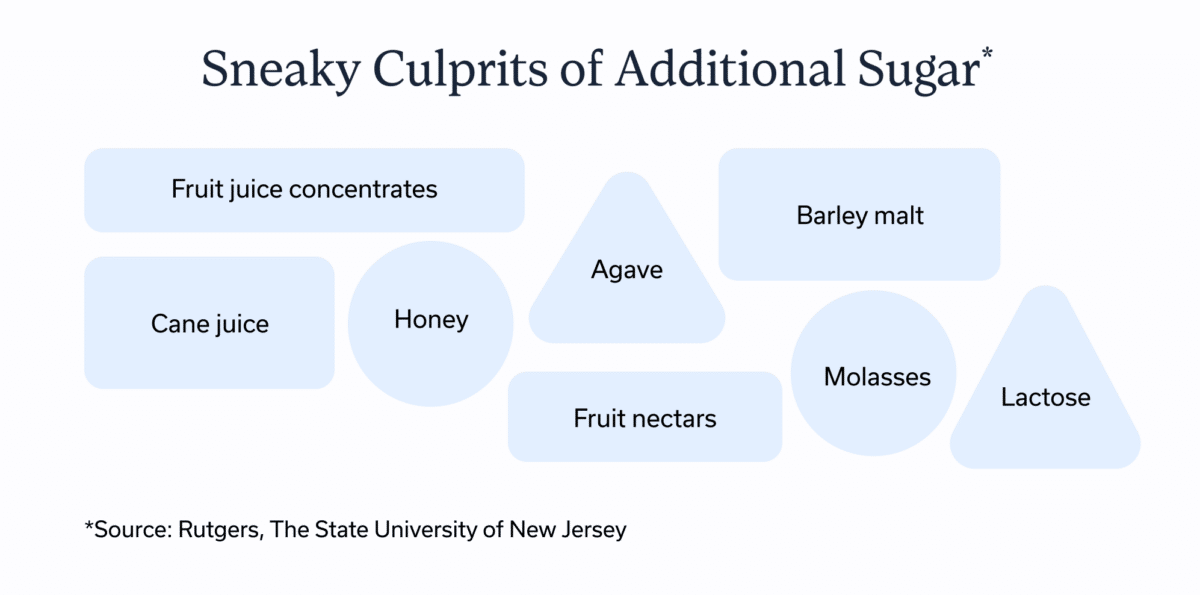
2. Artificially sweetened foods
What about those no- or low-calorie sweeteners, such as aspartame (under the brand names NutraSweet and Equal), acesulfame potassium (also called Ace-K and Sweet One), saccharin (Sweet ’N Low) or sucralose (Splenda)? Researchers are still trying to figure out these sweeteners’ effects on gut health, but some research shows that they do alter our gut microbiome and increase inflammation. If you’re looking for a low-calorie sweetener, stevia and monk fruit don’t appear to harm GI health, but research is ongoing.
3. Alcohol
Alcohol and the metabolites that are produced when your body breaks down booze can damage your gut microbiome and harm gut-barrier function. You might choose to skip alcohol altogether or indulge in only the occasional drink. If you do choose to drink, sticking to red wine—in moderation—may be best. However, newer research and guidance suggests no amount of alcohol is truly safe.
4. Fast food
Fast foods are easy and convenient, but they are generally unhealthy. They contain oodles of sodium, preservatives, refined carbohydrates, added sugar, and more dubious ingredients. Some research suggests that eating fast food even increases your risk for functional GI disorders, those that affect gut-brain communication.
5. Fried foods
A little food shack down the road from me has the absolute best fries, and I occasionally indulge in them. But most of the time I avoid fried fare. The high heat required for frying degrades the cooking oils, which then increases the food’s trans-fat content. Trans fats have links to intestinal inflammation, and research shows that people who eat fried foods tend to have a less diverse gut microbiome.
6. High-glycemic foods
The glycemic index categorizes foods based on how fast the food in question raises your glucose (blood sugar) after you’ve eaten it. Research shows a link between high-glycemic foods and inflammation, which can impact GI health. Processed carbohydrates—think white rice, white bread, crackers, bagels, pasta, donuts, pastries, etc.—are high on the index.
When you choose to eat these foods, a few strategies can help, such as never eating your processed carbs “naked.” For example, pair them with fiber-rich foods, protein, healthy fats, or a combination. These nutrients help blunt the glycemic response. Additionally, if you’re fond of rice, eat it cold. This turns rice into a resistant starch that actually feeds your gut microbiome, which then converts the nutrient into beneficial SCFAs.
7. High-sodium foods
I’ll take a pass on the salt, please. High-sodium diets have links to inflammation and can impair the gut microbiome. Of course, if you’re eating out at a restaurant, you may have little control over how much salt the person preparing your food adds to the dish. But when cooking at home, you can easily limit adding salt and stick to your favorite herbs and spices to flavor foods. A gut-friendly option that I love is Bragg Organic Sprinkle. Oshi experts also recommend seasonings from Gourmend Foods.
8. Processed foods
Research shows that ultra-processed foods make up nearly 60% of people’s diet in the United States, but these foods are some of the most problematic for GI health. For one thing, they raise blood sugar, which leads to inflammation. And they are loaded with added sugar and sodium and other additives—such as preservatives, dyes, emulsifiers, and more. Plus, they’re linked to IBD, colorectal cancer, and potentially even IBS. However, minimally processed foods, such as plain frozen veggies, don’t carry these risks.

9. Processed meats
See ya later, salami. Eating processed meat—packaged lunch meats, summer sausage, etc.—may increase your risk for colorectal cancer.
10. Processed plant-based meats
Processed plant-based meats don’t get a hall pass either. These are highly processed with preservatives, thickeners, dyes, and more that can harm GI health. That doesn’t mean you can’t snag a veggie burger from the freezer aisle for a quick-and-easy at-home meal. Just stick to the ones with the most real-food ingredients.
11. Red meats
The occasional cut of lean red meat is unlikely to do you harm. If you do eat meat, though, cutting down on red meat may benefit your gut. Research shows that higher red meat intake may increase your risk for colorectal cancer, and the World Health Organization (WHO) has classified red meat as a “probable carcinogen.” Red meat may also harm the gut microbiome and cause inflammation.
12. Refined grains
Grains are kernels (aka seeds), and a whole grain will have all its parts: the bran, the germ, and the endosperm. These parts contain valuable nutrients, including vitamins and minerals, protein, and carbohydrates, including fiber. A refined grain is missing one or more of its parts. That means the food manufacturer has removed some of those valuable nutrients. According to the Whole Grain Council, refining a grain strips out about a quarter of its protein and half to two-thirds of its other nutrients.
If you eat whole grains, such as whole oats, the protein and fiber present will help slow down carbohydrate absorption into your bloodstream. This means that whole grains will be lower on the glycemic index than refined grains. Plus, the fiber will feed your gut microbiome. If you eat refined grains, such as white rice, which is high on the glycemic index, you may be ratcheting up inflammation. (But again, eat that rice cooled and you’ve got a gut-friendly resistant starch!) The bottom line? Whole grains have an anti-inflammatory effect and beneficial impacts on your GI health, while refined grains could lead to trouble for your gut microbiome.
13. Sugar alcohol foods
Sugar alcohols (polyols)—such as erythritol, isomalt, lactitol, mannitol, sorbitol, xylitol—may cause intestinal discomfort, including gas and diarrhea. Some fruits and veggies naturally have sugar alcohols. These may or may not be a trigger for you. Food manufacturers also use sugar alcohols to sweeten some natural foods. Low-sugar ice creams and low-carbohydrate (or “keto”) protein bars often contain erythritol, for example. If you’re sensitive to polyols, you’ll want to avoid these snacks. Some polyol sweeteners, when their levels increase in your plasma, may contribute to the development of blood clots.
14. Soda and fruit, energy, and sport drinks
Sugar-sweetened beverages, such as soda, energy drinks, “juice drinks” (remember that neon-colored Sunny D?), and sport or electrolyte drinks often contain obscene amounts of added sugar, typically high-fructose corn syrup (HFCS). HFCS drives inflammation and may cause intestinal malabsorption issues and gut dysbiosis (an imbalance in the gut microbiome).
And remember: Artificially sweetened sodas (the “diet” versions) contain aspartame, which is also problematic. Sport drinks and electrolyte mixes often get their flavor from added sugar and their coloring from artificial dyes. A careful look at the ingredient list can help you choose no-sugar, no-dye options if you need a boost of electrolytes after a long or particularly sweaty workout—or if you reach for these to keep your fluids up when you’re not feeling well.
15. Trans fats
The FDA has banned the inclusion of trans fats (partially hydrogenated oils) in foods. However, we can still create trans fats by heating cooking oil beyond its smoke point. Trans fats have links to intestinal inflammation and disrupted gut microbiome. Stick to avocado and olive oil when cooking, and avoid frying foods.
Practical guide for gradually reducing harmful foods
The above list can feel a little daunting. But again, prioritizing practicality can help. Here are a few tips.
Take an additive approach
Instead of looking at this list as a litany of foods you must avoid, focus your efforts on adding in foods that are generally good for your gut health. By adding in foods, such as fruits and veggies, you may naturally eliminate some of the naughtier guys for gut health. For example, if you add a salmon dinner to your weekly diet, you may eliminate at least one red meat dish. If you reach for a handful of raw nuts for a snack, you may skip out on the cheese puffs. You get the idea.
Keep healthy options on hand
If you stock your fridge and pantry with foods that are good for your GI health and avoid buying ones that are problematic, you’ll have an easier time making healthful choices, especially at home.
Aim for progress, not perfection
Nixing 100% of the foods on this list 100% of the time is impossible—plus, aiming to make that happen could lead to an overly restrictive diet. Instead, take a practical and mindful approach. Choose foods that are closest to their original form, such as fruits and veggies, rather than fruit leather or potato chips. If you are buying a processed or packaged food item, check the ingredients list and opt for the version with as many real-food ingredients as possible. Take my bestie, peanut butter, for example. Traditional brands contain processed seed oils and added sugars. But natural options will have simple ingredients (aka just peanuts).
Remember that you have less control over your diet when dining out, getting takeout, or ordering in. Yes, you can carefully select your menu item, but you likely won’t know every single ingredient included. For this reason, aim to cook or prepare your own food as much as possible, while occasionally enjoying a meal at your favorite restaurant or ordering in a favorite dish to nosh in front of Netflix on a night in.

Key takeaways
- Diet is highly individual, but researchers have highlighted some of the foods that may harm gut health and overall health.
- These culprits include ultra-processed foods, added sugar, sugary beverages, and more.
- You can take a practical approach to limiting foods that may harm GI health by prioritizing foods that benefit overall health.
- A GI registered dietitian, such as those at Oshi Health can help you tailor your nutrition plan to your unique needs, preferences, and more.
FAQ
-
Individual food triggers vary for everyone, but overall the worst foods for gut health are ultra-processed foods. This is a wide category of foods that contain added sugars, added sodium, processed seed oils, preservatives, dyes, and more.
-
The 20 foods and ingredients on this list—including ultra-processed foods, added sugars, alcohol, and more—can cause an imbalance to your gut microbiome (the bacteria and fungi that live in your GI tract).
-
Ultra-processed foods often contain preservatives that keep bacteria from growing in the food. These preservatives extend the shelf life of various products by acting almost like antibiotics. When consumed, preservatives can kill healthy gut bacteria in humans.
Oshi is your partner in digestive health
Feel like your digestive concerns are running your life? You’re not alone—and we’re here to help you find lasting relief.
Oshi Health GI providers, gut-brain specialists, and registered dietitians work together to address the root cause of your symptoms and find solutions that actually work for you.
Whether you’re dealing with chronic digestive issues or unpredictable symptom flare-ups, our GI specialists deliver:
✔ Personalized care plans tailored to your lifestyle
✔ Science-backed strategies to calm your gut
✔ Compassionate, whole-person care
✔ And so much more!
Ready to take control of your gut health?



